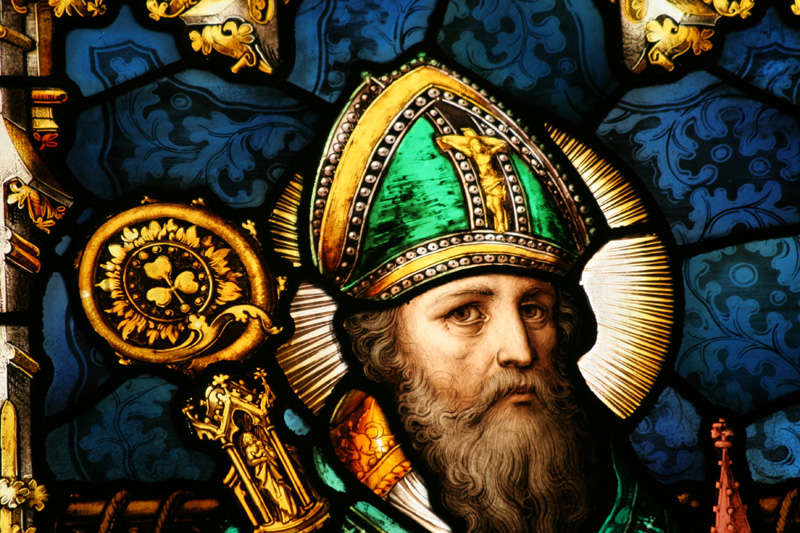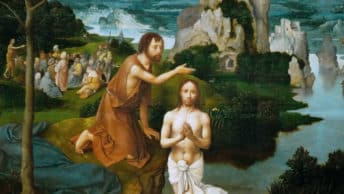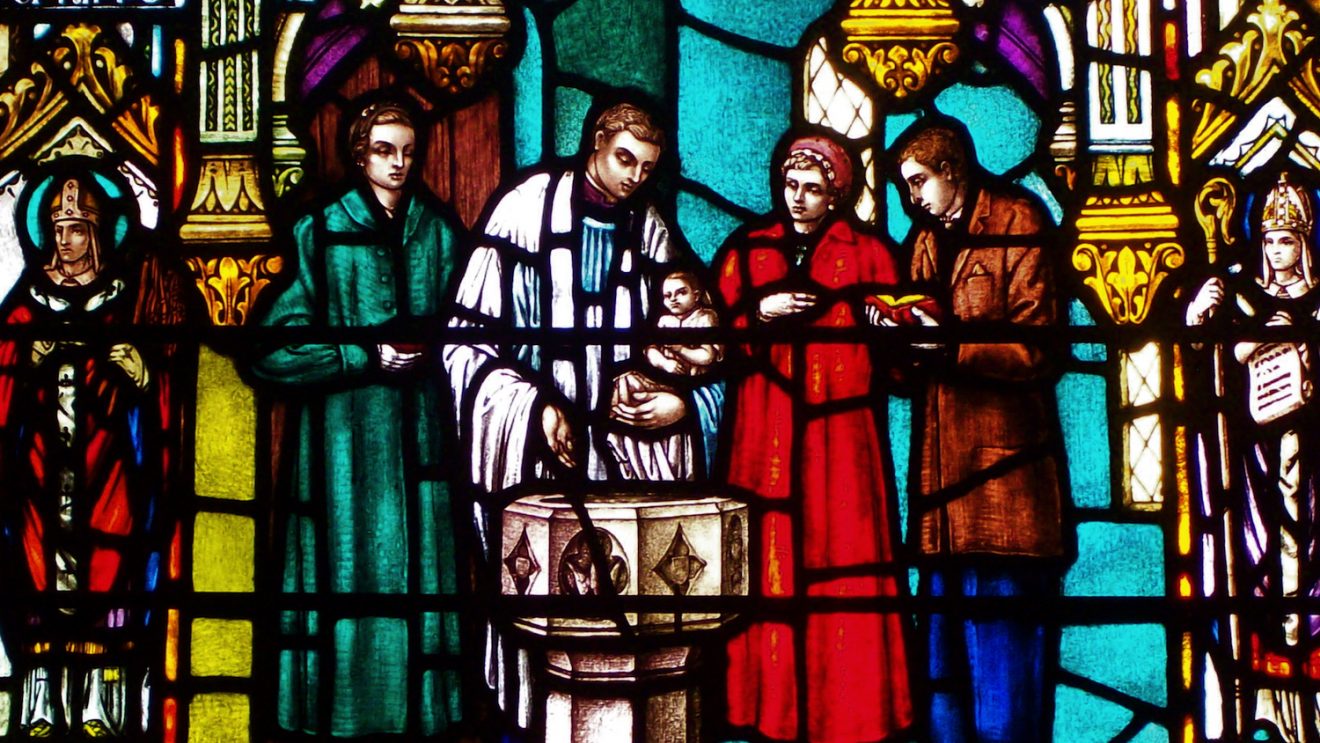Are saints very holy people? Yes, they are. Are they exempt from stupid mistakes? No, they’re not; they’re just as capable of embarrassing themselves or unwittingly causing suffering to other people as are the rest of us—as shown by an incident from the life of the great Irish bishop St. Patrick. In the year 445, while he was busy evangelizing in Ireland, Patrick entered a region whose local king was named Aengus. The king, who already had some knowledge of Christianity, welcomed the saint with great reverence and humbly requested baptism. Patrick was only too happy to comply, but an unfortunate accident occurred during the ceremony. The holy bishop had a crosier, or staff, with a sharp iron spike at the end; this allowed Patrick to plant it firmly in the ground when he needed both his hands free. At one point in the ritual Patrick did this—without realizing he had actually driven the spike into King Aengus’ foot. In the words of one chronicler,
The royal foot transfixed,
The gushing of blood
Enrich’d the pavement
With a noble flood.
The king didn’t flinch, move, or make the slightest complaint as the ceremony continued. When St. Patrick finally noticed what he had done, he was horrified, and begged the king’s forgiveness, while asking, “Sire, why did you suffer this pain in silence?” Aengus, who didn’t seem in the least disturbed by the event, answered, “I thought it was part of the ritual” (Pulpit Resource, April-June 1990, p. 20).
Baptism doesn’t, of course, involve any sort of physical agony or pain (though from the occasional baby screaming while being baptized one might conclude otherwise). There is, however, a sacrifice involved, for baptism is supposed to involve and represent a complete act of self-surrender—and God’s grace will be powerfully active in our lives only to the same extent this is true.
When Jesus presented Himself for baptism by St. John, He was formally accepting His mission from God, including all the opposition and suffering it would entail. Our Lord fully understood what He was getting into, but didn’t hesitate; that’s why God the Father said “You are My Beloved Son; with You I am well pleased.” God is seeking a similar wholehearted response from us. As we hear in the Book of Isaiah (55:1-11), “My thoughts are not your thoughts, nor are your ways My ways, says the Lord.” Our human inclination to hedge our bets and keep our options open doesn’t work with God; as St. John (1 John 5:1-9) tells us, the way we show we truly love God is by willingly and lovingly keeping His commandments. In other words, faith without good deeds accomplishes nothing; only those willing to make whatever sacrifices may be involved in Christian discipleship can truly claim to be God’s children.
Someone once wrote a tongue-in-cheek satire of lukewarm Christians, in which a person asked of the Church, “I would love to buy $3 worth of God, please—not enough to explode my soul or disturb my sleep, but just enough to equal a cup of warm milk or a snooze in the sunshine. I don’t want enough of Him to make me love a black man or pick beets with a migrant. I want ecstasy, not transformation; I want the warmth of the womb, not a new birth. I want a pound of the Eternal in a paper sack. I would like to buy [only] $3 worth of God, please” (Charles Swindoll, Improving Your Serve, quoted in homily notebook under “Commitment”). Sadly, that seems to be the attitude of so many Christians today—particularly among Catholics. Many Catholics are “registered” at their local parish although few attend Mass. As such, a minority of parishioners shoulder a majority of the financial responsibility. And for those of us who attend Mass each week, some of us aren’t always as faithful or generous or involved as we could be; so many times it’s easy to just go through the motions or assume someone else is going to do what needs to be done. That’s what’s wrong with much of our society. The 1986 Nobel Peace Prize was awarded to the Jewish author Elie Wiesel, who as a boy, was the only member of his family to survive a Nazi death camp. In his acceptance speech, Wiesel said, “Take sides. Neutrality helps the oppressor, never the victim. Silence encourages the tormentor, never the tormented” (Steve May, The Story File, p. 55).
If all of us who claim to be Christians spoke out against the evils in our society and got involved in working for a better world, our nation would be spiritually transformed almost overnight; God’s grace would be unleashed, and America would be filled with divine light and once again become a glorious example for the rest of the world. To the objection “But I’m just one person; what can I do?,” the answer is simple: pray to the Holy Spirit for guidance, ask the Lord for opportunities to serve Him, and then use the everyday events and encounters of life to share Christ’s truth and love. For instance, if the parish or a community group asks for volunteers, seriously consider saying “yes.” If someone seems to be having a bad day, share an encouraging word and offer your assistance. If our Catholic Faith is ridiculed or criticized, politely but firmly speak up in defense of the Church. If a family member or anyone else over whom you have influence misbehaves or makes a mistake, offer correction in a humble and loving way. If a business or public figure sponsors or promotes immoral or offensive entertainment or behavior, write a respectful letter of protest. If someone you know is living a sinful life, never cease praying for that person’s conversion. If you’re unexpectedly confronted with your own human fallibility and weakness, have the courage to take an honest look at yourself, and ask God to begin His process of renewing the world in your own heart.
Because we have been baptized, we have accepted the responsibility of living primarily for Christ, and not for ourselves. Contrary to the expectation of King Aengus, this doesn’t have to involve something as painful as having our foot pierced by an iron staff, but sometimes it does involve sacrifice. On Good Friday Jesus was willing to take up His Cross. Each day of our lives we must be willing to do the same—for only in this way we can we be absolutely sure that baptism will lead us to eternal life.








